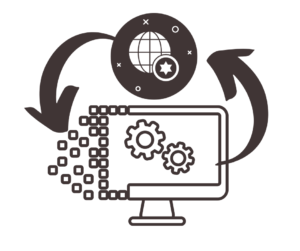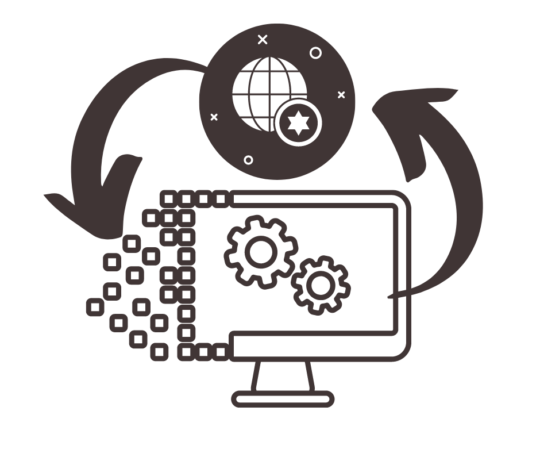It only takes one person to mobilize a community and inspire change. Even if you don’t feel like you have it in you, it’s in you. You have to believe in yourself. People will see your vision and passion and follow you. ~Teyonah Parris
Scene 1: We gathered for a BBQ at a friend’s stately new home at a quiet estate located in the northwest region of England. Seated in the garden on the day were 7 Nigerian men. Some had flown in from other European cities while others drove down from other parts of the UK. While we feasted on the barbecue and drinks the conversation shifted to the usual topic about happenings back home.
Following the usual lamentations one of us stated that he may NEVER step into Nigeria again. He wasn’t alone in that line of cerebration. Another friend echoed his sentiments and added that he had instructed his uncle to sell off his village land and share the proceeds with his cousin.
I was a little perplexed. Not because this was new to me but because I usually hear it from struggling diasporans and JJCs. My guys are none of these. They are worthy and successful professionals in their respective fields. Why would they say this? I always believed that prosperous Nigerians in the diaspora owe the country the duty of regular visits. Either to see relatives or to contribute to her development. This should be more so for those of us that lived there during our formative years.
My friends would go on to explain the reasons behind their decision and of course, the rising insecurity topped the chart. One told of his harrowing experience in the hands of kidnappers along the notorious Benin axis on his last visit back in 2017. Another narrated how a police officer threatened him at gunpoint over vehicle particulars. Insecurity, insecurity, insecurity…
Scene 2: A few days into the new year and my phone rang one early morning. My friend who lives about 90 minutes away wanted to visit later in the day. He has just returned after his late mum’s funeral in Nigeria.
I ran off to the local African shop and bought pounded yam for the Nsala soup my wife had made the previous day. So when he arrived we got into you guessed right; the usual discussion! He decried the worsening situation since his last visit 5 years ago. I heard about how the funeral had to be fixed in a hurry and so soon after his mum’s demise because of the uncertainties that often mark our general elections. They had to mobilise personnel from the police, DSS and the navy to ensure adequate security for the duration of their stay in the village.
There was frustration with the funeral organisers while some of the locals extorted the family not minding their bereavement. At the bank, a cashier wasted over 30 minutes on a transaction and added to his indignation by asking him to “search for a superior who may have gone outside”.
By the time he was leaving later in the evening, my friend divulged that his itinerary in the coming weeks involved two house-hunting trips to southern France and the Andalucian region of Spain. A befitting retirement home will have to be somewhere warmer that the temperate British Isles where he had lived all these years.
Scene 3: While writing the first two scenes I remembered another US-based friend who started a business back in 2016. Before then we had discussed investing in Nigeria to create employment with another stream of income that can be efficiently and remotely run. The business can then grow into branches nationwide.
He actually started before me and opened the pharmaceutical store in the federal capital. However, he was forced to close down after what he termed as “too many stories from his staff”. Employees entrusted with running the business were lousy and repeatedly made little or no returns. My guy just closed shop and focused on his hustle abroad.
In my own case, I believe that my extensive business experience in Nigeria and perhaps lady luck are factors that have kept my shop open since 2019. But of course not without the challenges. I had to temporarily close down twice in the first year while the search for a salesperson lasted and subsequently for the pandemic lockdown.
There are countless examples like these when the good intention of our brethren abroad are met with frustration that discourage visits and the attendant investment. But we cannot give up on Mama Africa. We must continue to do what we can. Those who may not want to visit can still assist by utilising the power of the internet in providing the opportunity for young Africans to acquire marketable digital skills. By so doing we can create multiple talent pools that diasporans can avail of to invest back home. So you see, it is actually a win-win approach.
In the past, I have written about how Africans in the diaspora can help to improve productivity in our homeland. And before then I already started a weekly essay competition to revive a waning literary culture and encourage budding writers. I also created a weekly #SundayPuzzle on Twitter for young people to exercise their brains. To date, we have published more than 1,000 essays from over 50 writers and paid out over N3 million in cash prizes as tokens of encouragement. We now have a growing audience of over 10,000 followers. All thanks to your magnanimous contributions.
Beyond these, we have other e-tivities/training on digital skill acquisition and self-development. Some testimonials of our writers can be found here.
We are still pushing and we solicit your support/collaboration to reach more youths with this noble initiative. You can become our Patreon or donate via Paypal.
Thanks for reading.
Please if you like this story feel free to peruse and share our free content at https://cmonionline.com/ or follow us on Twitter and Facebook. You can also contact us with a proposal for a possible collaboration.






